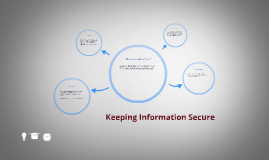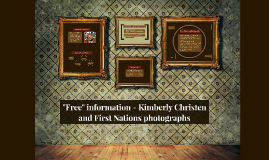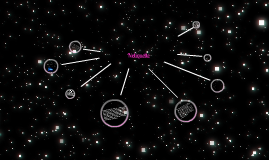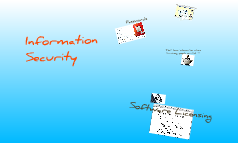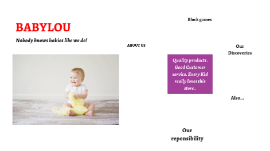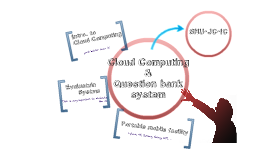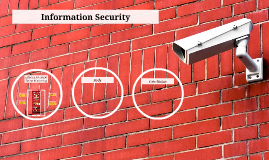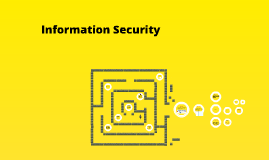Free information
Transcript: On social media One more question: Uno Langmann Collection Digital archives Our other goal: to not confuse you. Jefferson vs. Brandeis Our goal: to connect Christen to one of RBSC's digital archives (photographs from the Uno Langmann family collection) Now you talk! We don't see the First Nations people as they would portray themselves, but instead through the filter of the white settler photographer Photos used for Western interest and knowledge-gathering Archival silence - they can be seen, but their voices are not heard Our account is always through the colonizer, not first-hand Public? Private? Christen asks if open access and the research commons can exist “side-by-side with those alternative systems of knowledge production that rely instead on social relations maintained and forged through negotiated interdependencies”? (2880) ...in other words, can we use digital archives in combination with other forms that rely on a relationship between the archived and the archive user? (And what about when that relationship is contentious? "Openness is valued in Western societies." (2877) “assumption that information freedom will be a social and political benefit in all cases” (2878) "Unrestricted sharing" Her main focus: digitally 'archived' information, how it's collected, and how it relates to the "information wants to be free" meme (in particular, indigenous communities) Issue of accessibility Is this information "free" so it can be exploited for Western benefit? Openness and colonization (not neutral space) Taking things out of context “We can create both movements and tools that allow for an expansive notion of openness and access, but do so without sacrificing diversity or appealing to universal goals and generalized needs’ (2889) Some Christen quotes: “The universal goal of “unrestricted sharing” defines a terrain where any type of access control or differing notions of sharing are incompatible and must be overcome.” (2878) Justice Louis Brandeis: "the noblest of human productions – knowledge, truths ascertained, conceptions, and ideas – become, after voluntary communication to others, free as the air to common use" (2876) “We are stuck thinking about open or closed, free or proprietary, public or private, and so on, even though in such common online experiences as using social media platforms Facebook and Twitter, or when reading through legal parameters for the use and reuse of digital information, these binaries rarely exist.” (2874) First Nations photographs Notion that "information wants to be free" Digital rights management, intellectual property rights Knowledge as a public resource (accessibility) and information spread Christen on "free information"; digital archives Introduction to Christen Do you agree or disagree? "Free" information - Kimberly Christen and First Nations photographs "Openness" and freedom Do you think there is a 'public or private' binary now that we sign our lives away to social media 'terms and conditions'? In particular, how do you foresee this changing as social media becomes the norm? Do you agree with Vaidhyanathan's claim that we are "blind to the ways in which Google exerts control over its domain?" (2878) Finally, what about apps like Snapchat and the accusation that all photos are saved somewhere in its database? Is anything private anymore? Edward Curtis connection Thomas Jefferson: "ideas should freely spread from one to another over the globe" (2876)






